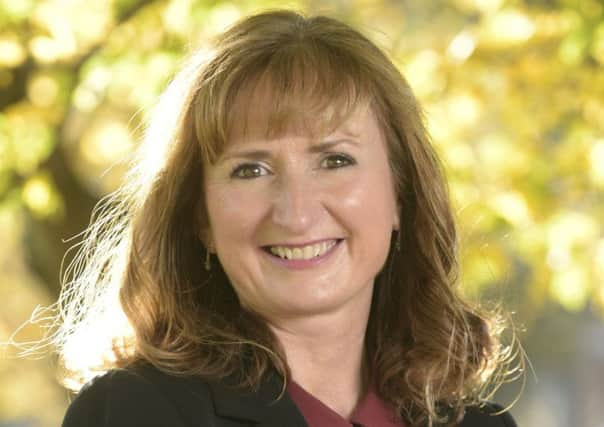Elaine Logan: '˜White, no sugar' '“ as a female private school head I find some men struggle with equality


These examples of greater sexual equality have, quite rightly, been celebrated at marches and rallies around the country during this centenary year.
The rate of progress over the last 100 years has not, however, been swift. Even by the early 1970s, my mother, who was working full time, was unable to apply for a credit card unless my father acted as a guarantor, and although I was proud to be a Queen’s Guide, most of my badges were for things like laundry, hostessing and ironing.
Advertisement
Hide AdAdvertisement
Hide AdSince then, women have won the right to get a bank loan or mortgage in their own name, several laws have been passed in an effort to stop sexual discrimination in the workplace, and even the Girl Guides have introduced badges for ‘expressing myself’ and ‘understanding human rights.’ Today, many men (and indeed, some women) claim that we have achieved sexual equality, so very little remains to be done.
Unfortunately, statistics on the lot of women in Britain suggest that we still have a way to go. Despite having a female Prime Minister, just 19.5 per cent of the MPs in Britain are women; a lower figure than in the United Arab Emirates, only 21 out of 97 High Court judges are female, and on average women still earn £5,000 per year less than men.
In my own profession, that of education, the evidence is mixed. While girls in Scotland now typically outperform boys at both primary and secondary level, and are more likely to enter higher education, there is still a tendency for them to choose ‘female friendly’ subjects which lead to stereotypical female-related careers. This is borne out by the fact that 90 per cent of primary school teachers are women. At secondary level the figure is 65 percent, but of these only 41 per cent are headteachers.
In independent secondary schools the percentage of female heads is even lower, and until very recently they were virtually unknown in the boarding sector.
This is hardly surprising, however, because the majority of these schools only opened their doors to girls in the 80s and 90s. If we are honest, this had more to do with economics than any genuine belief in the benefits of co-education. In most cases, girls were initially only admitted at sixth form level – they generated income, they strengthened the choir and they were very useful in the school play.
One of the first decisions that I made after my appointment as warden (head) at Glenalmond was to convert one of the boys’ boarding houses into a girls’ house.
The magnificent buildings around our main quad had been a male domain since 1847: by bringing girls into the very centre of the college I wanted to send out a clear message to the pupils, parents, staff and governors that this is a school where girls and boys are equally valued and have equal opportunities.
The whole college community was very supportive of this move, but when I attended a boarding school conference soon after, I realised that even educationalists can find it hard to see women in unfamiliar roles.
Advertisement
Hide AdAdvertisement
Hide AdDuring a break in presentations on the first morning while I stood near the coffee machines, the headmaster of an English public school walked over and said, ‘White coffee please, no sugar.’
I was a little taken aback, but I took his cup, and putting my Girl Guides hostess qualification to good use I gave him his coffee, and then introduced myself.
At first he looked astonished, then very embarrassed, and finally mumbled an apology, before turning on his heel. At the same conference, another headmaster came up and said, ‘Are you here to support your husband my dear?’
Past and recent legislation on sexual equality has certainly made a significant difference to women’s lives, but changes in attitudes are perhaps more important.
In a recent interview, Lady (Shirley) Williams had this to say, “We’re slowly getting equality, but the next step is recognising the equality and the decency of all human beings, women and men.
“All we have to do is persuade the men to leap forward too, because they haven’t got there yet.”
I would sincerely hope that, by the time they leave school, all the young men at Glenalmond will have made that leap.
Elaine Logan, warden, Glenalmond College.